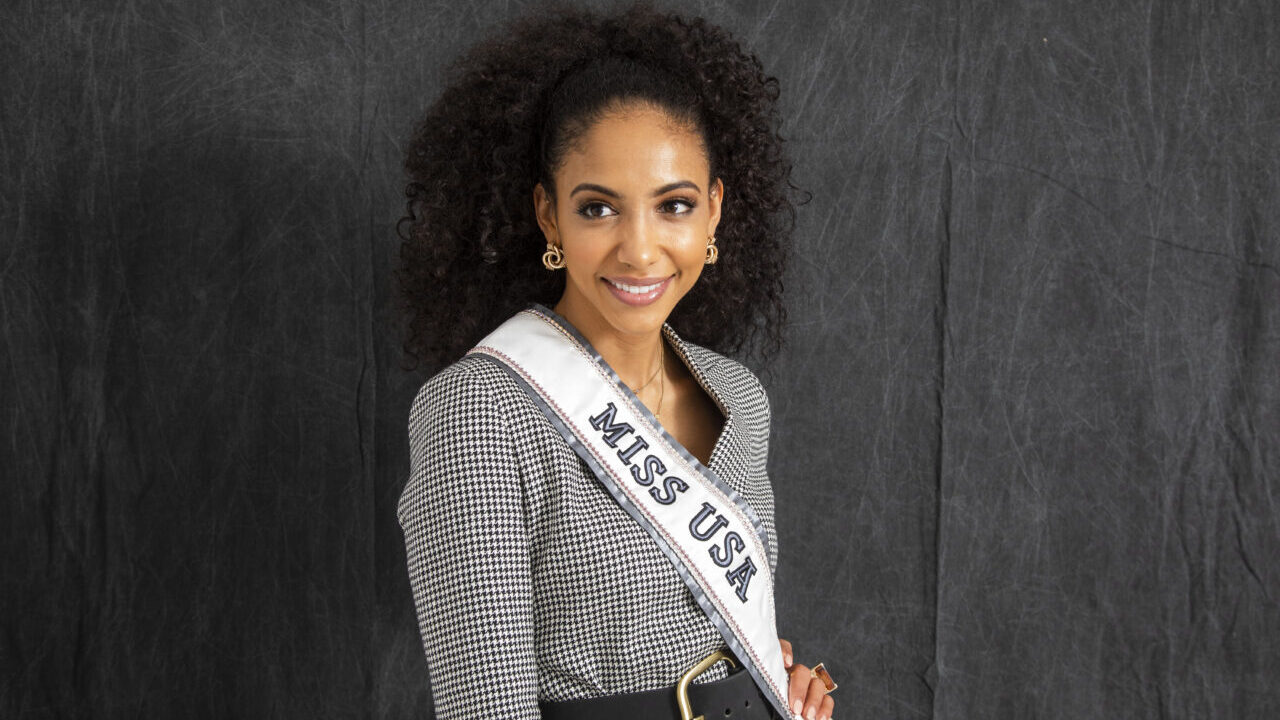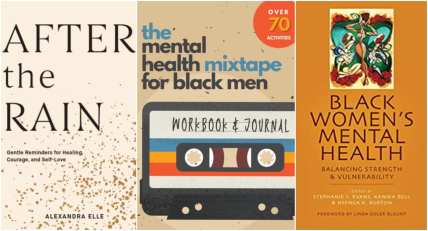We need to talk about Black women and high-functioning depression
The death of former Miss USA Cheslie Kryst has forced many Black women to reflect on their own wellness.
Editor’s Note: The following article discusses mental health and suicide. If you or someone you know is in crisis, please contact The National Suicide Prevention Lifeline at 1-800-273-8255 or you can reach the Crisis Text Line by texting HELLO to 741741. Both are free, confidential, and available 24/7.

“I’m fine.”
It’s a common refrain said by many Black women when we actually are not. The truth is, something has not been fine for a while but we just push through. We keep going to work, helping the kids with their homework, making dinner, running errands for loved ones, singing on the praise team and putting everyone on our list as a priority above ourselves. All while telling our favorite nontruth:
“I’m fine.”
This week, Black women find themselves in state of perpetual shock following the death of former Miss USA and Extra correspondent Cheslie Kryst by suicide. Social media statuses have conveyed the profound loss for words, while several essays have spoken directly to the need for us to be honest about our pain—and, in some cases, have chronicled the experiences of those of us who are still here after we didn’t want to be. What is true, whether we knew Cheslie or not, is that we are not fine. We are not okay.
On Wednesday, Cheslie’s mother April Simpkins released a statement confirming the cause of her daughter’s death. “Today, what our family and friends privately knew was the cause of death of my sweet baby girl, Cheslie, was officially confirmed,” Simpkins captioned a post on Instagram featuring a photo of the two. “Cheslie led both a public and a private life. In her private life, she was dealing with high-functioning depression which she hid from everyone – including me, her closest confidant – until very shortly before her death.”
Both Kryst’s death and Simpkins’ statement resurface a necessary discussion about Black women and depression. More specifically, Simpkins’ statement spotlights “high-functioning depression,” a condition largely unknown to many, and therefore, often unrecognized. There is a great deal of confusion concerning high-functioning depression, and even among healthcare professionals, opinions on its existence and characteristics vary. Where licensed professionals do agree is that “persistent depressive disorder (PDD),” known medically as dysthymia, is the more accurate medical term and diagnosis.
Differing from major depressive disorder, PDD—or high functioning depression—is a more sustained depressive episode, allowing people to maintain their daily routines within their personal and professional lives. Consequently, PDD is considered less debilitating. This is what makes it dangerous. As people living with the condition are able to perform their tasks as usual, they and those around them often don’t recognize the severity of the problem.
Licensed mental health therapist Erica Harper noted that Black women are at a particularly risk of PDD because of the “need to maintain the appearance of the proud, strong and unbothered Black wom[a]n.” While the hallmark of PDD is that typical symptoms of depression are not present, this is especially true for Black women. “Depression doesn’t always appear the way people think it does,” Harper explained. “High functioning depression is sneaky, leaving even those who are currently falling within its clutches in denial.”
Facing a host of societal factors, Black women are impacted by depression differently. Nearly 10 percent of Black women believe everything in their life requires an extraordinary amount of effort compared to 6 percent of white women and, according to a study on the impact of the COVID-19 pandemic on Black women’s mental health, that number is steadily increasing. High functioning depression is categorized as the presence of depressive symptoms for at least two years. People experiencing PDD will typically have a period of no more than two months where they truly feel like themselves. Additional symptoms of PDD are a lack of interest in daily activities, difficulty with decision-making and feelings of guilt and worthlessness.
Harper noted that, for many, PDD can begin in childhood and continue throughout adulthood. And, as Black women continue to face intersectional oppression, they often don’t recognize it as depression. “People living with this disorder won’t tend to think that they’re suffering because they are usually a little depressed most of the time,” said Harper. “In essence, they’re so used to suffering that they’ve normalized it as their usual state of being.”
The dangers of Black women believing that perpetual sadness is normal robs us of so much, including what Harper named as our “birthright” as women “to experience happiness and joy”. In addition to refusing to see depression as a way of life, Black women must stop seeing depression as our fault. A host of factors, including brain chemistry, genetics and life events, are at work. Likewise, we also must recognize the triggers of incredibly high stress, financial strain and major life events that can collide and cause us to not be our best selves.
We can’t always control the factors and triggers that bring depression into our lives but we do have the power to dictate how we respond to them. While many recommend those living with PDD, get active, watch their diet and rest—the steps for Black women must go much further beyond that.
We have to be willing to be honest and transparent about our pain with those who love and know us best. “I’m not okay” needs to replace “I’m fine,” because too often, it is the truth. And, as we live in that honesty, we must also release the idea that we are burdening others. Those who truly love us would much rather hear us “ramble” and “vent” over coffee or FaceTime than miss us because we are gone. They love us as much as we love them.
Most importantly, we must also be willing to seek the help of licensed professionals who will assist us, through group therapy and/or medication, on our journey towards wellness. There is nothing weak or defeatist about seeking help. It doesn’t mean we’ve given up or that we lack faith. It simply honors the truth that we are at our best when we are in community with others.
As we mourn the loss of Cheslie and reflect on our own mental health, let us move out the darkness that comes with suffering in silence and stand bravely in the light—knowing then we have taken the first steps to be well.

Candice Marie Benbow is theGrio’s daily lifestyle, education and health writer. She’s also the author of Red Lip Theology: For Church Girls Who’ve Considered Tithing to the Beauty Supply Store When Sunday Morning Isn’t Enough. Find her on Twitter and Instagram @candicebenbow.
TheGrio is now on your TV via Apple TV, Amazon Fire, Roku, and AndroidTV. Also, please download theGrio mobile apps today!


